"Coffee or tea is an impossible choice. Coffee in the morning, peppermint tea in the evening." What does a productive day of writing look like for you? Is it highly structured or highly flexible? Do you write out in public places or tucked away at home? A productive day of writing is usually a day off, which I don’t get that often! But when I do, I start with a coffee and clean my home a bit. I cannot work in cluttered spaces. I usually start with reading or a Pinterest crawl for setting and character inspiration (Pinterest is a great tool for writing, people). I’d say I’m more of a technical writer in the morning, working on planning, essays, editing, or responding to e-interviews *wink*. The evening is when my emotions are high and the muses come to visit. That’s when the magic happens. Overall, I wouldn’t say it’s very structured but there’s definitely a pattern to my best writing days. What is your worst writing habit? How do you work around it? Hmm. Tough one to narrow down. I’m working on writing in an active voice, rather than passive. Taking some editing courses definitely helped me understand the mistakes I make so I can catch them sooner. However, I would have to say that I struggle the most with my voice in writing. I’ll try to start something off in an eloquent or hyper-professional voice and lose my own in the process. I’ve actually started works over and pretended I was writing an email to a friend to tell the story. Once I find my own voice, I hang on to it and write without stopping to correct anything. I’ve noticed that this process results in much stronger writing and requires exceptionally fewer edits. "I’ve actually started works over and pretended I was writing an email to a friend to tell the story.
"I’m focusing most of my energy on my weekly Dungeons & Dragons campaign. In your article Internal Censorship in Writing you speak about writing for (or around) others versus writing for yourself. As you have already worked through writing about some very traumatic personal experiences do you have any advice for those who want to process their own personal history through writing but who also fear the repercussions? I have indeed written about a few traumatic personal experiences. Rereading what I’ve written helps me remember what I’ve been through when I’m being hard on myself, and that alone is valuable. My advice to those who want to write about their own history is to set up a safe space and a safe system. Write somewhere private. Change the names of characters and the setting of the story if it helps. Most of all, when you’re writing and you start to feel that fear or anxiety, keep going. I remember one night I was writing a scene that symbolically retold one of the times my ex had abused me. I was actually having a panic attack through the whole thing, but when I finished the scene I felt lighter. The burden of that story was now on paper (or screen, as it were). It’s like an offloading experience, revisiting the past to analyze it and rework it into something that you control. Writing about trauma is scary, but trust me: keep going. Writing through things can be in the form of fiction, poetry, memoir--you name it. However it needs to come out, get it out. No one has to read it but you. "Writing about trauma is scary, but trust me: keep going... However it needs to come out, get it out. You have been writing a fantasy novel for some time now. Can you tempt us with a few details about your project or is it all under wraps? Oof. Well, as it turns out, when you start working on a project at 14, your style, skill, intention, and story change drastically. Learning about myself and the story I want to tell with this novel is the priority right now, some of that learning done through working on my other projects, some through self-reflection. I’m cramming a lot into this novel: personal stories, social commentary, and a lot of wild ideas. Figuring out how to get them all to work together in a compelling plot has been the wall on which I’ve been banging my head for the last 10 years. As far as details go, I can offer a few things. It’s high fantasy and a big world with incredible diversity. Three female protagonists (oh yes, three) who find themselves in a situation much larger than them. It’s going to be dark, gritty, epic, and even a little sexy. Along with your writing you also work as an editor. If there was one common mistake that you could magically fix on every manuscript you come across what would it be? Redundancy. In my brief time editing, I have seen a lot of works that go over a topic too many times, skimming the surface of the matter instead of diving deep or moving on. During my time studying science, I learned how to write succinctly and it’s transferred to my editing style. There are definitely times you should go into detail and spend a lot of time on a certain subject, expanding and adding depth, but then there are moments where you have to trust the reader to extrapolate the full story from a brief snippet that you provide. Other times, writers are just trying to figure out what they want to say and when they find it, everything they’ve written leading up to it can be scrapped because it was only their journey to get to the point, not the point itself. A little bit of self-editing can go a long way! Writers have to ask, “Is this sentence important? Does it add something that nothing else does?” and go from there. "In my brief time editing, I have seen a lot of works that go over a topic too many times, What is your next big project and where can we stay up to date on it? Well, I can’t really say what the next big project will be because I’m not sure which one of my projects I’m going to sink my teeth into and make happen. However, I will definitely be keeping my website and social media updated with my thoughts, essays from school, and projects. Find out more about Adeline and her writing on her website.
0 Comments
I recently had the pleasure of being featured as a guest on the Myths, Legends, and Lore Podcast hosted by my good friend Siobhan Clark (also the author of Children of Midgard). Listen in on our conversation about the Norse myths, their influence on our work, and habits that cultivate creativity. The episode also features an original musical arrangement of The Song of the Nidavel from The Gatewatch! Find more amazing podcasts by Siobhan by following The Myth Legend & Lore Podcast on Twitter.
"I can’t stomach olives, that’s the one food I cannot grit my teeth and power through, What does a typical day of writing look like for you? Do you have any rituals or habits that help to keep you focussed or make your session more productive? It really depends a lot on the project(s) I’m working on, but more often than not I find my writing to be sporadic. While I do push myself to work every day, the amount of work I get done varies depending on my mood, if I’m rested, or headspace. I am careful not to end up in situations where I am forcing myself to write or feeling pressured to because I believe all of that greatly hinders my creativity. When I do sit down to write though, I will usually listen to some music to get me in the right headspace, never any songs with lyrics or singing, usually background music from video games or orchestral pieces. What first drew you to writing and what keeps you writing after years of going at it? Do you have specific goals in mind, like publication, or do you write for other reasons? My first introduction to writing was a high school teacher I had. He really encouraged me to try creative writing and was a supporter in my beginning days. Since graduating, the thing that inspires me is other people’s work, funnily enough, I think especially the work I dislike. When I read, see, or even play a piece of work that doesn’t make me feel anything, my head fills with ways I would have written it differently. I’ve never been the kind of person to have long term goals in mind, and the same rings true for writing. Whether it be a novel, poetry, or a quick short story, my primary concern is to create things I like and am ultimately proud of, but that being said, publishing is also a major goal with Injectable Ashes specifically. "When I read, see, or even play a piece of work that doesn’t make me feel anything,
You have lived with mobility challenges for most of your life. Do you feel like this influences your writing in the perspectives of your characters or do you not view this as an influencing factor? I have lived with a nervous system disability for most of my life, so it’s hard to say it doesn’t dictate at least some of my writing. I can say there are absolutely elements that have been addressing my disability metaphorically; in fact, you might be able to break down the entire storyline into one giant allegory. And as much as I preach about separating the author from their characters, eventually, details are naturally going to overlap. "I can say there are absolutely elements that have been addressing my disability metaphorically; What was it like to write the sequel to Injectable Ashes? Was it easier or harder? Did anything you thought was going to happen shift dramatically or did it play out as you planned? It was considerably more stressful working on the sequel. Every creative decision I made required weeks of deliberation and planning. I became a perfectionist because of how much I love Injectable Ashes, not wanting to only match the quality I expect from myself, but to outdo myself. That was something that really weighed me down and made things considerably more difficult to conceptualize. But as for when it came time to put pen to paper and actually write, I was able to find my rhythm quite quickly and pick up right where I left off. Initially, I thought I had a pretty firm idea in how the story would turn out in the sequel, but what I ended up with was something entirely different, and a lot of those difference were changes I didn’t think of until I got to writing those parts. "I became a perfectionist because of how much I love Injectable Ashes, What is your next big project? Will you write a third book in the series or do you have something else planned? I’m taking a break for a while from the novel, but I already have ideas cooking in the back of my mind for a third installment, so that will likely be the next major project I’ll be looking to conquer, until then though I’ll continue writing, working on music, poetry, short stories, or whatever else catches my interest. To keep up with Brendan and his upcoming projects follow him on Twitter.
"My weapon of choice would have to be the double-headed ox-horn axe, a fierce-looking weapon." What does a typical day of writing look like for you? Do you have any rituals or habits that help you become more productive? My rituals are nothing special. I make sure I have my coffee and cigars on hand, and sometimes, I like having whiskey in my coffee. My typical day starts out early (4:30 am/5:00 am), and I shut down my computer at 7:30pm to clear my head before going to bed at 9:00pm. Right now at this moment, I am doing rereads and rewrites of my storyline for Thorgil’s third book (The Vultures of Khurasan). Right now, the story stands at 159,000 words with 21 chapters, and 12 illustrated inserts by Pablo Marcos. If you could travel back in time to converse and drink a horn-full of mead with any viking in history who would it be and why? It would have to be Harald Fairhair, the first king of Norway (850-932). Harald is responsible for unifying Norway into one kingdom. He was as we say in the military; a warrior’s warrior, a true badass. "I make sure I have my coffee and cigars on hand, and sometimes, I like having whiskey in my coffee."
In reviews of your books Thorgil Bloodaxe has been compared to such iconic fantasy characters as Conan the Barbarian. However, in a wider social context, characters such as Conan have come under fire recently for portraying masculinity in a certain light. What do you hope to contribute to the wider conversation about masculinity and ‘being a man’ through Thorgil’s epic exploits? I write to write. I do not worry about all the social norms of today. It seems as if every day, one group or another finds a reason to be upset over something. My main character Thorgil Bloodaxe is all man, a military man who is not politically correct. If you are upset about something he may have done or said, he does not care. I served in the Marine Corps from 1980-1990. In the military, we are all brothers. We have a certain way of talking and joking around. Civilians who never served will never understand a military man. When I write about Thorgil, I rely on my time as a Marine. "When I write about Thorgil, I rely on my time as a Marine." There are many incredible pieces of art featuring your character Thorgil Bloodaxe on the Facebook fan page. Do you have any advice for writers who want to get art made for their novel? Over the years, I have commission many talented artists/illustrators to render Thorgil Bloodaxe in their artistic fashion. In 2012, I commissioned Bart W. Sears to give Thorgil his classic look. Bart owned his own company called Ominous Press, and has worked for Marvel Comics, and DC. Bart is well known for his articles in Wizard Magazine called Brutes and Babes. From 2012-2014, I commissioned a young talented artist named Savy Lim. Savy liked the character of Thorgil Bloodaxe. He asked for my permission to illustrate the larger-than-life warrior. I liked what he submitted to me and I commissioned him for my second Thorgil book (Shadow of Death). Savy Lim illustrated and colored the 2nd book’s front cover, and illustrated the book’s inserts. Savy’s rendition of Thorgil Bloodaxe is used as a reference for all illustrators that I commission. I tell them I am not looking for a new look for my main character. From 2014-2017, I was blessed to be able to commission a legendary illustrator who has over 50 years of artistic talent under his belt. Pablo Marcos took an interest in Thorgil Bloodaxe. Pablo way back in the 70s, worked for Marvel Comics on such titles as The Savage Sword of Conan (the black and white magazine), Red Sonja, and the Zombie. I always enjoyed his illustrations in the Conan magazines. I commissioned him to illustrate the 3rd book’s artwork (The Vultures of Khurasan). Oscar Gonzalez who worked with Pablo at the Edgar Rice Burroughs Inc., colored the ink illustration. For the 3rd book, I have 12 illustrations from Pablo. They will be placed at the end of several chapters in the book to fire up the imagination of the reader. Advice for any writers who would like to commission an artist:
Savy Lim illustrated and colored the 2nd book’s front cover, and illustrated the book’s inserts. Savy’s rendition of Thorgil Bloodaxe is used as a reference for all illustrators that I commission. I tell them I am not looking for a new look for my main character. "You will get what you pay for. Be professional when dealing with the artists. Show them the respect." You’ve published two books in the Thorgil Bloodaxe series which are available on Amazon, Enter the White Queen and The Shadow of Death. Is there a third book in the works or are you working on a different project? Yes, there is a 3rd book. It is titled Thorgil Bloodaxe: the Vultures of Khurasan. It will be released in late 2019, featuring the amazing artwork from Pablo Marcos. Right now, the story stands at 159,000 plus words with 21 chapters. Formatted into a 6x9 book, it will be around 400 pages. Allow me to share the back cover blurb: In a savage world ruled by the sword, with armies cutting red swaths across the lands, only one man heroically stands above them all. He is the mercenary leader Thorgil Bloodaxe. His name is well known and respected from the far eastern lands to the western lands. They say that Thorgil has fought in so many conflicts and battles over the span of his lifetime that he cannot name them all. Therefore, when the Caliph of Baghdad called upon him and his warriors to aid him with the conflict in his troubled land, the mercenary leader did not hesitate to accept. One more battle added to the long list did not matter to him. With his warriors, they join the Caliph's high-commander to trek to the hostile mountains of Khurasan, where they must confront a rebel leader and his fanatic followers known as the Vultures, putting an end to their terror spree against the Abbasid Caliphate. Find out more from Ralph E. Laitres on the Thorgil Bloodaxe fan Facebook Page.
"as the northern realm of Noros came into clearer view and the main characters delved The three main characters, Torin, Bryn, and Grimsa, are inspired by the three central figures of Norse Mythology: Odin, Loki, and Thor. Other characters throughout the book reflect familiar Norse personalities in a much looser sense: Freya, Frigg, Heimdal, and the dwarven brothers Brokk & Eitri to name a few. Certain events, such as a drinking contest in an enormous mead hall, are directly based on specific myths, in that case Thor’s Journey to Utgard. Torin’s obsession with riddles (part of his Odin-like nature) culminates in a duel of riddles to the death with a giant king; this is inspired by scenes from The Saga of Hervör and Heidrek and from Vafþrúðnismál in the Poetic Edda. The epic poems recited in the book are structured around some of the poetic rules of drottkvaett, the ancient court meter of viking skalds; further, many treasure and place names are direct or close translations of Old Norse words. And, of course, the entire book centers around defending the human realm against giants and trolls which is a classic heroic task of both Norse gods and Viking heroes. "the entire book centers around defending the human realm against giants and trolls
"any readers who have had the pleasure of bathing in Iceland’s Blue Lagoon will recognize its influence on the underground baths visited by the characters in Gatewatch" Distinctly lacking in The Gatewatch are Viking longships and the northern sea because the story takes place high up in the mountains. This, of course, will be remedied in future sequels, the first of which is already well underway. For now, find the first three chapters on the website and stay up to date on publication details and future novels by joining The Gatewatch mailing list.
As both an academic and a professional writer you have published research papers, a doctoral thesis, poems in anthologies, and most recently your own poetry collection, Biometrical. Is there a writing schedule or any particular writing habits that help you to be so prolific? Many writers and academics I know tend to set aside particular blocks of time for writing or require specific conditions in order to write, such as their own office, a blank desk or total silence. My schedule is pretty flexible in comparison. Part of this flexibility derives from working conditions I had during my Master’s and PhD degrees at Cambridge, where I usually wrote and researched in cramped spaces, such as the corner of an overfull table in the library, or the desk in the tiny bedsits in which I lived. Also, every day had a different schedule, in terms of teaching and other duties, so I trained my brain to work during whatever blocks of time were free. This training seems to have helped my poetry writing practice. "I usually wrote and researched in cramped spaces, such as the corner of an overfull table in the library, or the desk in the tiny bedsits in which I lived... This training seems to have helped my poetry writing practice."
In your doctoral thesis, Thinking Outside the Hall, you investigate (among many other things) the evolution of the relationship between the skald (Norse poet) and their audience over different periods of time. Who do you envision to be your audience when you are writing poetry and in what way do you hope to engage them? Such an interesting question, Joshua, to think about how an imagined or expected audience might shape our works in conscious or unconscious ways! Skalds (and past poets from many cultures) often invoked specific audiences, who changed over the centuries in response to the evolving role of poetry in society. At the same time, the skalds also invoked future audiences and expected their poetry to be re-performed in unknown circumstances. Today I think this “dissemination mentality” is a more prominent influence on our conception of an audience. Poets often remain distanced from their audiences until they engage them on social media or give a reading. "Today I think this 'dissemination mentality' is a more prominent influence on our conception of an audience. The internet makes the question of how far our words will travel unanswerable. Does this broadness make it easier or more difficult to write? If we try to engage a specific audience, will it seem artificial and will we then lose sympathy with other audiences? Sometimes I mull over these questions. I try not to imagine any specific audience for my poetry or poetic translations, however, I do expect that an audience of my poetry would be willing to “work” a bit with the verse, partly because I enjoy poetry I can really sink my teeth into -- poetry which doesn’t immediately offer up all its treasures and secrets. That said, I would hope that any reader could derive some pleasure from one of my poems: if they are uninterested in the argument or subject matter, then hopefully they will find pleasure in the sounds and rhythms. "The internet makes the question of how far our words will travel unanswerable. As a scholar of Old Norse poetry you’ve spent a lot of time studying poetry in a language other than English. Does your time spent studying these ancient verses influence the English poetry you write today in any specific way? Absolutely. The subjects that Old Norse or Old English poets composed about don’t tend to inspire the subject matters I write poetry about, however, my academic training has had a huge impact on my verse. I’ll give two examples. Firstly, being attuned to sounds and rhythms considered gratifying in other languages has broadened my perspective on what kinds of sound and rhythm combinations are possible and pleasurable in modern English. I strive for unique and striking aural effects in my verse. Recently, I was pleased to discover a review of my chapbook, Biometrical, by Jeremy Luke Hill (on The Puritan’s Town Crier website), where Hill commented extensively on the kinds of aural play I use. For medieval Scandinavian skalds, sound was considered a structural “prop” holding up a poem, and among the most crucial factors determining form. Contrastively, many modern poets do not consider sound to be part of a poem’s form. Recently I heard a poet claim that they rarely use form in their work, but that same poet employs regular rhymes and chiming sound patterns in many poems! Perhaps modern poets could rethink how sound creates structure or form outside of a familiar rhyme scheme such as “abcb”. "...being attuned to sounds and rhythms considered gratifying in other languages has broadened my perspective on what kinds of sound and rhythm combinations are possible and pleasurable in modern English." Secondly, the ancillary disciplines I needed to study for my graduate work (linguistics, philosophy, history, art history, palaeography, etc), have given me a large store of ideas to draw upon, and I tend to weave concepts I find interesting from these disciplines into my work. When I’m looking for inspiration, I often find it helpful to be turned outwards as opposed to inwards, and (hopefully) avoid the pitfall of writing only about “me” experiences. Your poem Diacritics speaks of the loss of diacritical marks (e.g. ‘o’ vs. ‘ø’ in Norwegian) because of the pervasiveness of technology, specifically the typing of text on keyboards and our preference for web-based conversation. Do you think technology is causing language to suffer or do you think it is simply the next step in the evolution of human communication? Perhaps some of both. Diacritics was a poem I wrote in part about how “small things make big shifts” in terms of comprehensibility and meaning, between people of different cultures or backgrounds. The diacritical mark, as a small sign that makes a character function in a dramatically different way, became a metaphor for these differences we encounter in an increasingly globalized and digitized world. Technology gives us the opportunity to explore other languages, to hear them and see their characters, in ways not possible before. To me this is extremely exciting and I feel it should inspire people to use more words and learn new languages! In some ways technology has allowed this, in that many people use language apps or online translators, and thereby gain access to other languages. But a downside of technology is that it can make us lazy in our language usage. Some of the “voices” in Diacritics speak to this concern, as they push for addressees to switch to their own language patterns. "Technology gives us the opportunity to explore other languages, One of my favorite aspects of Norse verse is the use of kennings. (For readers unfamiliar with the term a kenning is a metaphorical phrase in Old Norse and English literature. For example, the ‘whale-road’ is a kenning for ‘the ocean’). As a scholar of Old Norse poetry do you have a few favorites you would be willing to share? Here are a few light-hearted and more unusual kennings from skaldic poems: -Jaw-lightning, for insults -Roof-shingle of the salmon’s hall, for ice -Forest of the brain’s farmstead, for hair -Bilge-water of the war-god’s wine, for bad poetry -Dirty-faced deceiver of the wood-bear of old walls, for a cat (the “wood-bear of walls” is a kenning for a mouse) The publishing environment for poets can be particularly difficult to navigate, but you have succeeded in publishing your own collection of poetry. Do you have any advice for emerging poets who are interested in getting their work published? Join a workshop group with poets whose work you admire and then hone your poems before submitting them to reviews. Send out lots of submissions and brace yourself for lots of rejections. Remember any encouragement you receive from a publisher or journal…it means someone will accept your work soon! Try to avoid writing about subjects you see everyone else writing about because you think it will help you get published (as a poetry editor at Pulp Literature, I can tell you these poems don’t usually stand out unless they approach a well-worn subject from a very refreshing or surprising angle). Attend readings and engage with the work of other poets, and read widely the work of exceptional poets. "Join a workshop group with poets whose work you admire and then hone your poems before submitting them to reviews... Attend readings and engage with the work of other poets, and read widely the work of exceptional poets." |
AuthorJoshua Gillingham is an author, editor, and game designer from Vancouver Island, Canada. Archives
April 2022
Categories
All
|

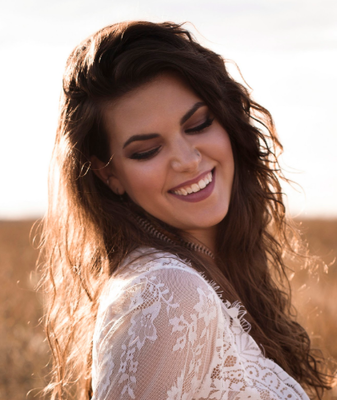
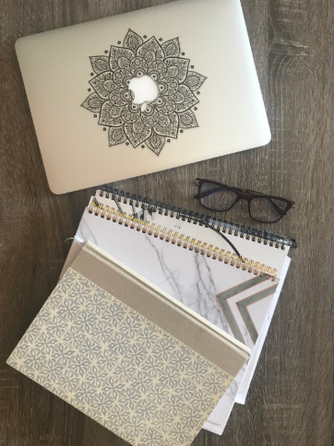

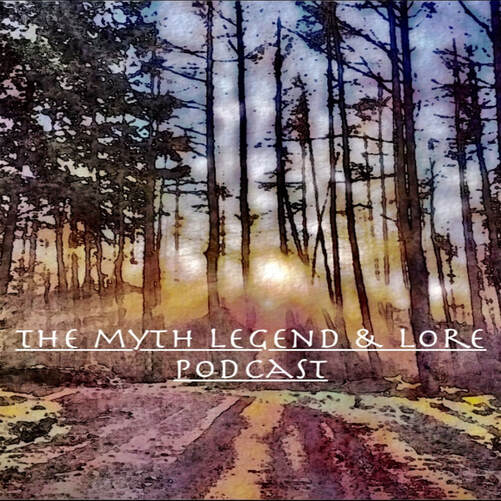
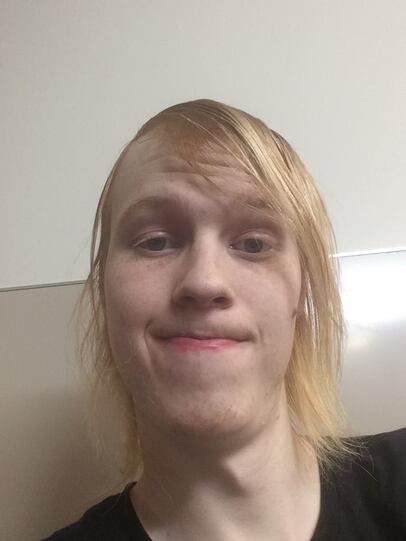
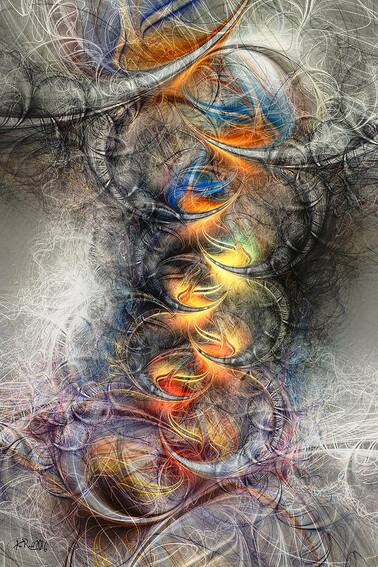
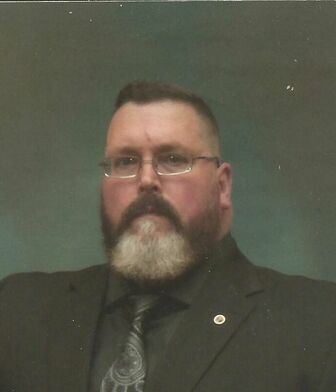
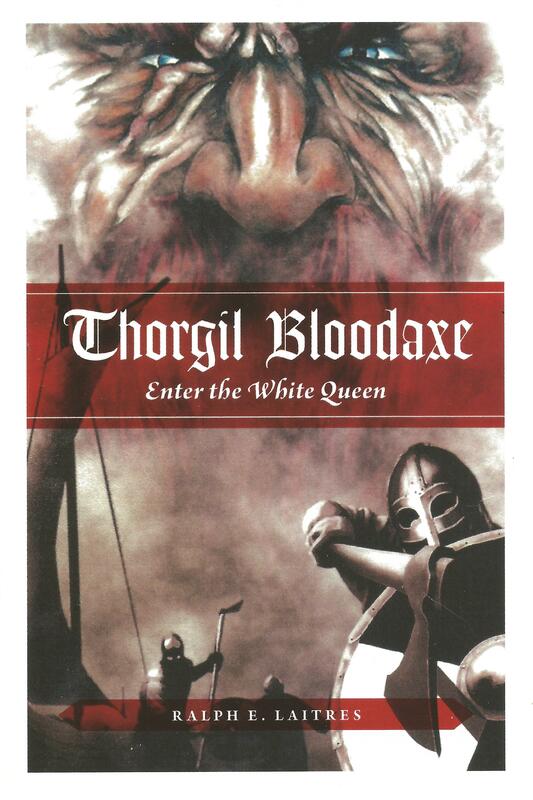

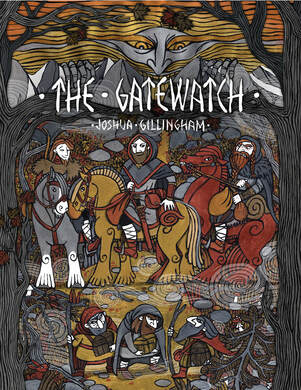
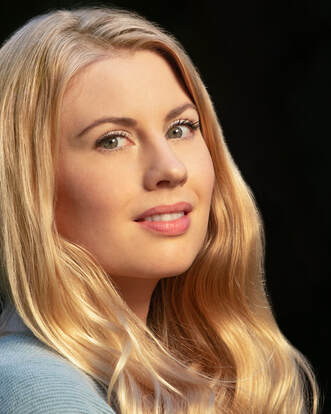
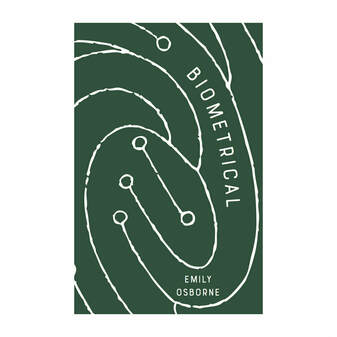

 RSS Feed
RSS Feed
